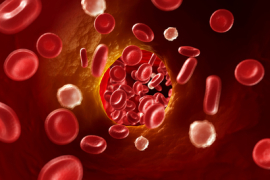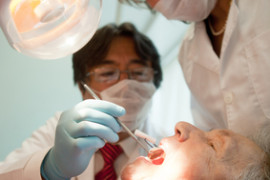The remnants of a common oral bacterium can cause serious complications after a heart attack, according to a new study entitled “Systemic Porphyromonas gingivalis lipopolysaccharide exacerbates the inflammatory response post-myocardial infarction through matrix metalloproteinase-9.”
In the study, published in the Journal of the Federation of American Societies for Experimental Biology, researchers found that the presence of systemic Porphyromonas gingivalis lipopolysaccharides increases MMP-9, an enzyme known to increase the inflammatory response to cardiac events—specifically, heart attacks.
Translation: When P. gingivalis and/or its remnants are present in the bloodstream, the resulting inflammatory response causes added problems in the hearts of patients who have recently had a heart attack.
The findings may offer a potential reason why periodontal disease is associated with increased chance of death after a heart attack.
It’s really big news, but it’s not the only takeaway from this study.
The significance of this study can be summed up in the first three words of the study’s title: “systemic Porphyromonas gingivalis.” P. gingivalis is a known periodontal pathogen; its point of entry into the body is the mouth. Even a few short years ago, the words “systemic Porphyromonas gingivalis” would have been greeted with raised eyebrows.
Those three words in the title of this study show the enormous amount of progress the oral-systemic movement has made. The body of research demonstrating the important impact of oral health on systemic disease, immune response, and healthcare costs is now so substantial that it can no longer be ignored.



